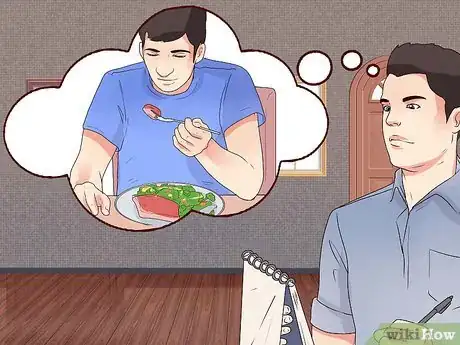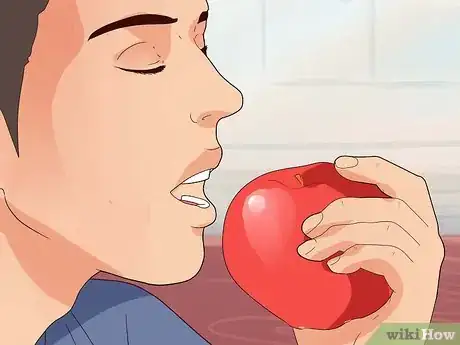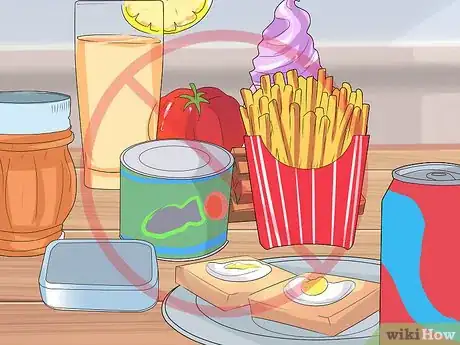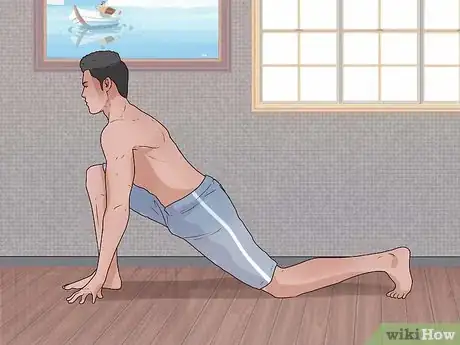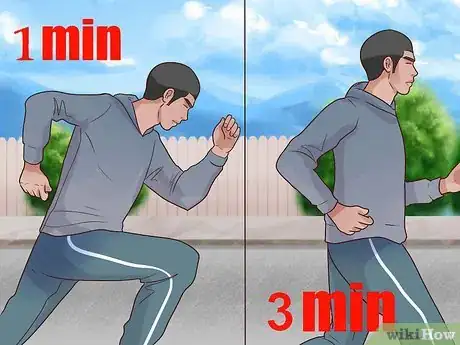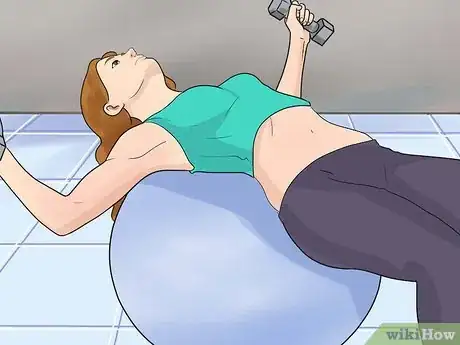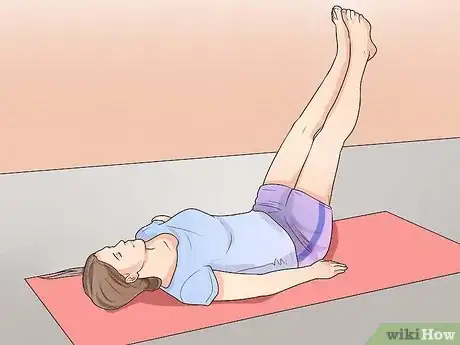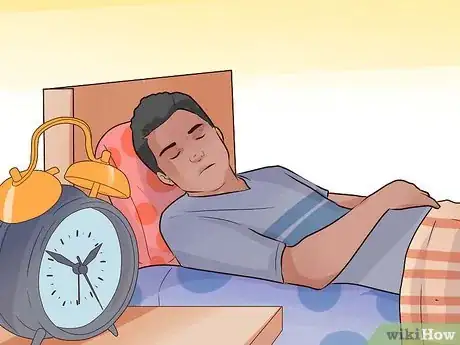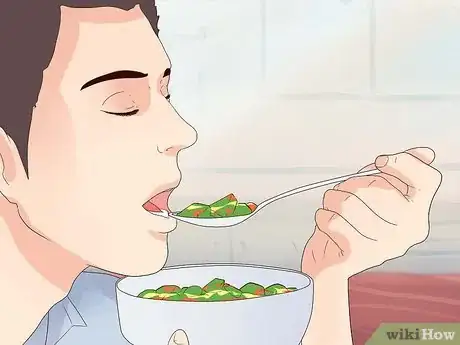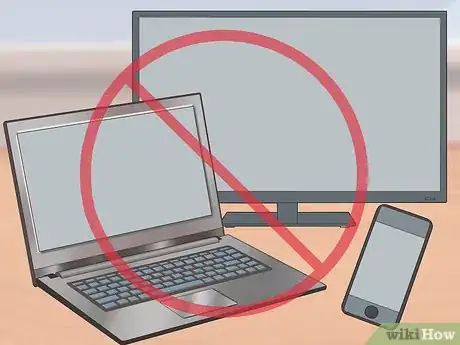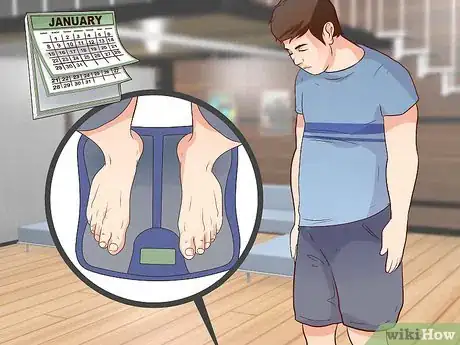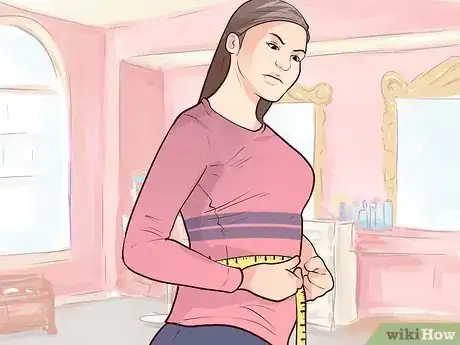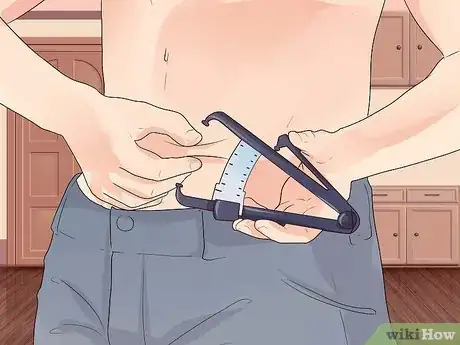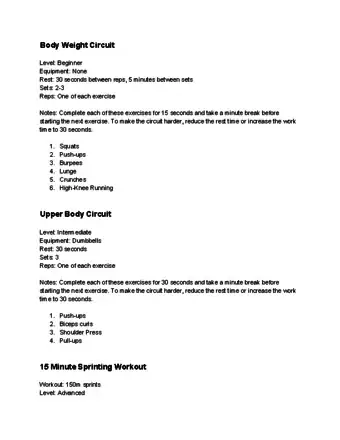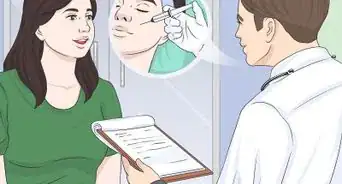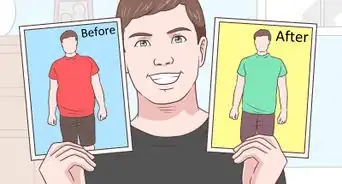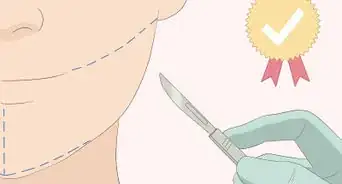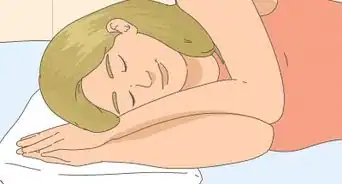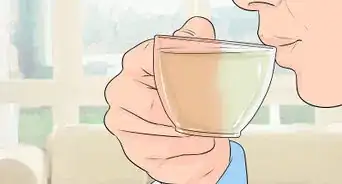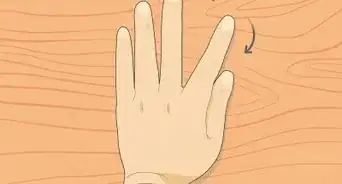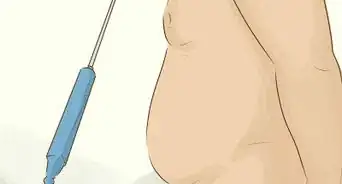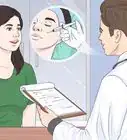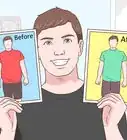This article was co-authored by Tiffany Stafford, CPT. Tiffany Stafford is a Certified Personal Trainer, Holistic Nutritionist, and the Owner of LifeBODY Fitness, a personal training and small group training studio based in Hillsboro, Oregon. She has over 15 years of personal training and coaching experience. She specializes in wellness training, life coaching, and holistic nutrition teaching. She earned her personal training certification from the National Academy of Sports Medicine (NASM).
There are 24 references cited in this article, which can be found at the bottom of the page.
wikiHow marks an article as reader-approved once it receives enough positive feedback. This article has 17 testimonials from our readers, earning it our reader-approved status.
This article has been viewed 598,570 times.
Reducing your overall body fat may help improve your health. While some body fat is essential to the healthy functioning of your body, large amounts of excess body fat can lead to serious health problems, like sleep apnea, high blood pressure, heart disease, and hardening of the arteries. Not to worry—we’ve put together plenty of dietary, exercise, and lifestyle tips that can help you safely lower your overall body fat and reduce your risk for certain health conditions.
Steps
Sample Exercises
Expert Q&A
Did you know you can get expert answers for this article?
Unlock expert answers by supporting wikiHow
-
QuestionHow do you go from 15% to 10% body fat?
 Tiffany Stafford, CPTTiffany Stafford is a Certified Personal Trainer, Holistic Nutritionist, and the Owner of LifeBODY Fitness, a personal training and small group training studio based in Hillsboro, Oregon. She has over 15 years of personal training and coaching experience. She specializes in wellness training, life coaching, and holistic nutrition teaching. She earned her personal training certification from the National Academy of Sports Medicine (NASM).
Tiffany Stafford, CPTTiffany Stafford is a Certified Personal Trainer, Holistic Nutritionist, and the Owner of LifeBODY Fitness, a personal training and small group training studio based in Hillsboro, Oregon. She has over 15 years of personal training and coaching experience. She specializes in wellness training, life coaching, and holistic nutrition teaching. She earned her personal training certification from the National Academy of Sports Medicine (NASM).
Life Coach, Personal Trainer, & Holistic Nutritionist
-
QuestionI am getting fatter every day. What can I do?
 Connie Martin, RDConnie Martin is a Registered Dietitian specializing in clinical nutrition in Georgia. She received her B.S. in Dietetics from Southeast Missouri State University in 1982.
Connie Martin, RDConnie Martin is a Registered Dietitian specializing in clinical nutrition in Georgia. She received her B.S. in Dietetics from Southeast Missouri State University in 1982.
Registered Dietitian 1. Take a look at side effects of medications you are taking; many can cause weight gain. Be sure to discuss this with the MD who prescribed them; do not stop any medications on your own as many need to be tapered gradually. 2. Consider removing all processed food from your diet. Eat only vegetables, pasture raised meat, healthy fats (such as coconut oil, olive oil, avocado), and some fruit. It is possible that you have developed food intolerances to some processed foods, especially wheat, corn, or dairy. 3. Remove toxins from your environment, such as plastic water bottles & food containers, harsh chemicals for cleaning, cosmetics and lotions. All can contain chemicals which may disrupt your hormones which can cause weight gain.
1. Take a look at side effects of medications you are taking; many can cause weight gain. Be sure to discuss this with the MD who prescribed them; do not stop any medications on your own as many need to be tapered gradually. 2. Consider removing all processed food from your diet. Eat only vegetables, pasture raised meat, healthy fats (such as coconut oil, olive oil, avocado), and some fruit. It is possible that you have developed food intolerances to some processed foods, especially wheat, corn, or dairy. 3. Remove toxins from your environment, such as plastic water bottles & food containers, harsh chemicals for cleaning, cosmetics and lotions. All can contain chemicals which may disrupt your hormones which can cause weight gain.
References
- ↑ http://www.npr.org/sections/thesalt/2015/08/13/432087757/you-don-t-need-to-go-low-carb-to-burn-body-fat-study-says
- ↑ http://www.mayoclinic.org/healthy-lifestyle/weight-loss/in-depth/weight-loss/art-20047752
- ↑ http://www.mayoclinic.org/healthy-lifestyle/weight-loss/in-depth/weight-loss/art-20047752
- ↑ http://www.womenshealthmag.com/weight-loss/protein-weight-loss
- ↑ http://www.medscape.com/viewarticle/827768
- ↑ http://www.medicinenet.com/script/main/art.asp?articlekey=55983
- ↑ http://www.clemson.edu/extension/hgic/food/nutrition/nutrition/dietary_guide/hgic4062.html
- ↑ http://www.ncbi.nlm.nih.gov/pubmed/15331203
- ↑ http://www.cdc.gov/healthywater/drinking/nutrition/
- ↑ www.medscape.com/viewarticle/714569
- ↑ https://www.ncbi.nlm.nih.gov/pubmed/20974015
- ↑ Tiffany Stafford, CPT. Personal Trainer. Expert Interview. 26 March 2020.
- ↑ http://www.sugarscience.org/hidden-in-plain-sight/#.WCtYhOErJE4
- ↑ Tiffany Stafford, CPT. Personal Trainer. Expert Interview. 26 March 2020.
- ↑ http://www.cdc.gov/physicalactivity/basics/adults/
- ↑ http://www.health.harvard.edu/staying-healthy/abdominal-fat-and-what-to-do-about-it
- ↑ http://www.ncbi.nlm.nih.gov/pubmed/24746512
- ↑ http://www.shape.com/fitness/workouts/8-benefits-high-intensity-interval-training-hiit
- ↑ http://www.cdc.gov/physicalactivity/basics/adults/
- ↑ http://www.cdc.gov/physicalactivity/basics/adults/
- ↑ http://www.bodybuilding.com/content/recuperation-and-muscular-growth.html
- ↑ https://www.cdc.gov/physicalactivity/basics/pa-health/
- ↑ http://www.prevention.com/weight-loss/weight-loss-tips/how-prevent-weight-gain-due-stress-and-anxiety
- ↑ http://www.mayoclinic.org/healthy-lifestyle/adult-health/expert-answers/sleep-and-weight-gain/faq-20058198
- ↑ http://www.helpguide.org/articles/diet-weight-loss/emotional-eating.htm
- ↑ Tiffany Stafford, CPT. Personal Trainer. Expert Interview. 26 March 2020.
- ↑ Tiffany Stafford, CPT. Personal Trainer. Expert Interview. 26 March 2020.
- ↑ http://www.ncbi.nlm.nih.gov/pmc/articles/PMC3268700/
- ↑ http://www.apa.org/monitor/nov07/daily.aspx
- ↑ http://www.womenshealthmag.com/fitness/the-truth-about-body-fat-percentage
About This Article
To reduce overall body fat, make sure to eat lots of lean protein, such as chicken, tuna, eggs, and beans, which are essential to burning body fat. Additionally, eat plenty of low calorie, nutrient-rich foods like fruits and vegetables, while reducing the amount of carbs you eat, such as bread and pasta. You should also increase your activity level, since combining a healthy diet with exercise is the most effective way to reduce body fat. In general, you should aim for 30 minutes of aerobic activity each day, such as walking, jogging, swimming, or weight training. For more advice, including how to reduce body fat by managing your stress levels, keep reading.
